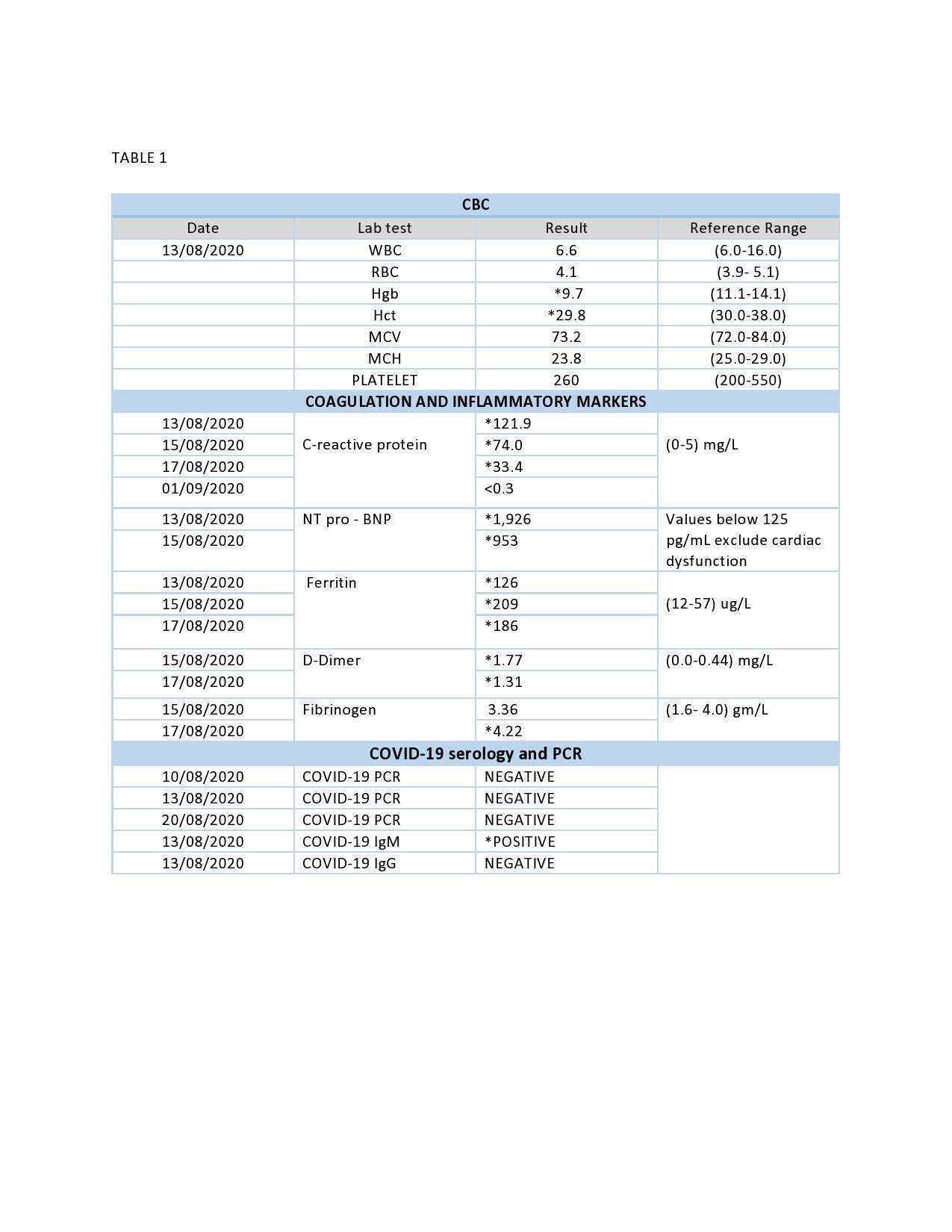
Unusual Presentation of Kawasaki Disease Related to COVID-19 With Acute Diarrheal Illness in an Infant
Introduction: Kawasaki disease is one of the most common vasculitis in childhood of unknown etiology. The diagnosis usually requires the presence of fever at least 5 days with signs of muco-cutaneous inflammation. With COVID-19 pandemic, the incidence of Kawasaki disease has increased.
We report an infant who presented with fever and diarrhea and was diagnosed with Kawasaki disease related to COVID-19 infection.
Case: 8 months old male patient, full term, previously healthy, presented to the emergency department with history of high grade fever for 5 days duration and diarrhea for 3 days duration. He had no rash, irritability, lymphadenopathy, non-purulent conjunctivitis or mucosal changes. No history of sick contact.
Patient was admitted to Pediatric ward for further workup and evaluation. Patient was found to have elevated levels of ProBNP, ferritin, C-reactive protein, D-dimer and fibrinogen.
COVID-19 IgM turned to be positive, COVID-19 PCR was negative three times, COVID-19 IgG: negative.(table-1)
Echocardiogram showed normal biventricular function with no coronary artery involvement.
A multidisciplinary team including general pediatrics, rheumatology and cardiology were involved and the plan was to treat as Kawasaki disease. Patient was given intravenous immunoglobulin 2 grams/Kg and aspirin. He was discharged from the hospital in a good general condition with resolution of fever and diarrhea and significant improvement in the inflammatory markers. He was discharged with regular follow up in the clinic.
Conclusion: Fever and intestinal symptoms can be the only manifestations of Kawasaki disease related to COVID-19 infection.
Although the cause of Kawasaki disease is unknown, however it is possible to have an association between Kawasaki disease and the ongoing COVID-19 pandemic, further studies are needed to explore the potential causality.

Powered by Eventact EMS